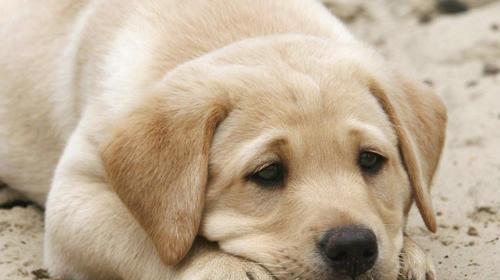
Clarify whether it is ordinary diarrhea
There are many problems of diarrhea, and many diseases may cause dogs to have diarrhea. Therefore, before we deal with, we must find out whether the dog is simply diarrhea or the problem stimulated by other diseases.
1. What are the symptoms of diarrhea?
The manifestation of small intestinal diarrhea is that the amount of feces increases and the frequency of defecation increases slightly. There are about 3 to 5 times a day. Pets are not effortless. Dogs may also have the problem of vomiting and weight loss. It is usually accompanied by too much gas, and sometimes we can even hear the rumbling sound of gas in the stomach. If there is blood in the feces, it means that it has digested through the intestine and is black.
Because of diarrhea, dogs cannot absorb nutrients normally, so they will cause their weight to be alleviated, and the hair is dry and easy to break. There is a tiny protein in the animal called albumin. Its role is like a sponge, which can keep the normal amount of moisture in the blood vessels. When diarrhea occurs, albumin is lost with a large number of stools, and the albumin in the blood decreases, causing the water to exudes from the blood vessels and accumulate in other parts, then it will develop into leg edema, chest water and ascites.
Large -intestine diarrhea, including colon and rectal diseases, can cause pets to discharge a small amount of soft stool every day, usually more than 5 times a day, and pets are difficult to discharge. If there is blood in the feces, the color is red. There may be sticky mucus in the stool. Pets do not vomit often and do not reduce weight.
2. How to deal with dogs with diarrhea?
We can deal with dogs with good appetite and no other bad symptoms:
If the dog does not vomit, do not eat within 12 hours, only provide clean drinking water. Avoid dehydration due to multiple diarrhea. After 12 hours, we can try to give it some light diet and eat less meals. When the stool starts to form, it gradually returns to the normal diet.
If you have mild vomiting symptoms, let it drink a small amount of water (a few tablespoons each time) every hour, and then do not feed in the next ten hours. If vomiting stops, you can provide a certain light diet, and then slowly recover.
3. What kind of situation should not be dealt with by yourself, send it to the hospital as soon as possible?
Dogs are lethargic or there is no reaction to it; frequent vomiting; blood or vomit vomit in vomit or feces, or danger is dark and sticky; severe diarrhea More than hours. If the dog has diarrhea, vomiting, and blood, it will be sent to the hospital as soon as possible to check whether it is caused by diarrhea caused by infectious diseases.
4. How to prevent diarrhea?
If you change your diet, you need to graduate; try not to feed your bones (except the big bones of the molars); do not let the dogs play with small toys that can be swallowed by them; Work is the most important point.
